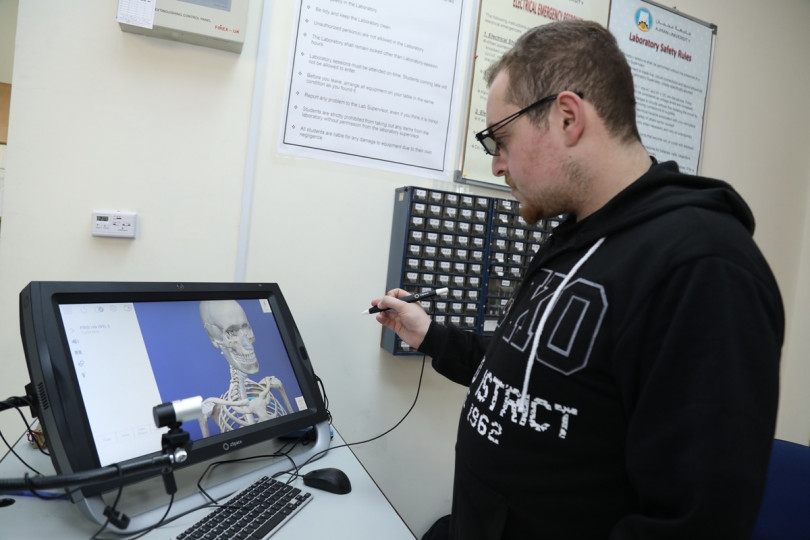
Understanding the Growing Importance of Biomedical Engineering
In today’s rapidly evolving healthcare landscape, biomedical engineering has emerged as one of the most promising and in-demand career fields. Combining principles of engineering with medical sciences, this interdisciplinary discipline focuses on developing innovative medical devices, advanced imaging technologies, and regenerative therapies that enhance patient care and save lives. With the continuous growth of healthcare technology, pursuing a degree in biomedical engineering can open doors to numerous rewarding opportunities, especially at institutions like Ajman University.
Why Choose Biomedical Engineering as a Career Path?
Biomedical engineering is at the forefront of medical innovation. From designing prosthetic limbs to developing sophisticated imaging systems and AI-powered diagnostic tools, biomedical engineers are instrumental in transforming healthcare. The global demand for professionals in this field is driven by multiple factors:
- Technological Advancements: Breakthroughs such as 3D bioprinting, robotic surgeries, and personalized medicine require skilled biomedical engineers to develop and implement new solutions.
- Growing Healthcare Needs: An aging population worldwide and rising chronic diseases increase the need for innovative medical devices and therapies.
- Global Health Challenges: Biomedical engineers play a key role in addressing pandemics, improving diagnostics, and expanding access to quality healthcare.
At Ajman University, students can explore these cutting-edge areas through comprehensive programs that prepare them for this high-demand market.
Academic Programs and Specializations at Ajman University
Ajman University offers a robust Bachelor of Science in Biomedical Engineering designed to equip students with technical expertise and practical skills. The curriculum covers vital areas like medical device design, tissue engineering, biomechanics, bioinformatics, and neural engineering. Students benefit from hands-on experience through labs, research projects, and internships, fostering real-world readiness.
Pathways for Further Specialization
Beyond the undergraduate level, Ajman University offers pathways for specialization with master’s and doctoral programs, enabling students to deepen their knowledge, engage in research, and prepare for academic or industry leadership roles. This layered academic approach ensures graduates remain competitive in a dynamic job market.
The Benefits of Studying Biomedical Engineering at Ajman University
- Industry-Relevant Curriculum: Designed in collaboration with healthcare and technology sectors, ensuring skills meet current market needs.
- State-of-the-Art Facilities: Access to advanced laboratories and research centers dedicated to biomedical innovation.
- Strong Industry Connections: Opportunities for internships, projects, and collaborations with leading healthcare companies and research institutions.
- Career Support: Dedicated career services that assist students in securing placements in hospitals, R&D organizations, and tech startups.
Choosing Ajman University guarantees a solid foundation for a career in this high-demand field, supported by experienced faculty and industry links.
Skills and Qualifications for Success in Biomedical Engineering
To excel in biomedical engineering, students should develop a blend of technical and soft skills, including:
- Problem-solving and analytical thinking
- Creativity and innovation in device and system design
- Strong understanding of biology, physiology, and engineering fundamentals
- Effective communication and teamwork abilities
- Adaptability to evolving technological trends
At Ajman University, specialized coursework and research opportunities help students acquire these competencies vital for success in the healthcare technology industry.
Career Opportunities After Graduating in Biomedical Engineering
Graduates from Ajman University can pursue careers in diverse sectors such as:
- Medical Device Industry: Designing and manufacturing diagnostics, implants, and patient monitoring systems.
- Healthcare Facilities: Managing and maintaining medical equipment in hospitals and clinics.
- Research & Development: Innovating new technologies and therapies in academic institutions or industry labs.
- Pharmaceutical and Biotech Firms: Developing drug delivery systems and regenerative medicine approaches.
- Academia: Teaching future biomedical engineers and conducting pioneering research.
High earning potential, coupled with the chance to make meaningful contributions to healthcare, makes biomedical engineering a highly attractive career choice.
Take the Next Step with Ajman University
If you are passionate about healthcare technology and engineering, pursuing a biomedical engineering program at Ajman University is a strategic decision. The university’s structured programs, research opportunities, and industry collaborations position students for success in this expanding field.
Get Started Today
Learn more about how Ajman University can help you build a career in biomedical engineering. Submit your application now or contact our admissions team to discover available scholarships and admission requirements.
FAQs about Biomedical Engineering
- How long does it take to become a biomedical engineer?
- A typical bachelor’s degree takes four years. More advanced roles may require master’s or doctoral studies, which add additional years.
- What skills are crucial for success in this field?
- Strong problem-solving, creativity, technical knowledge in biology and engineering, and effective communication are essential.
- How can I gain practical experience?
- Participate in internships, research projects, and industry collaborations available through Ajman University’s programs and partnerships.
Start your journey today with Ajman University’s biomedical engineering programs and contribute to future healthcare innovations.

